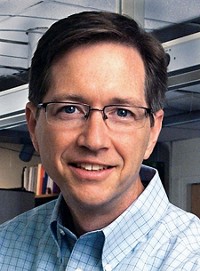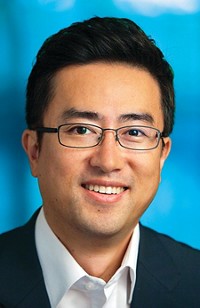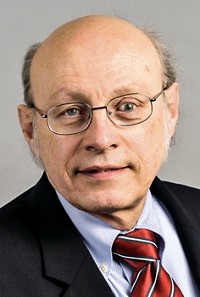Advertisement
Grab your lab coat. Let's get started
Welcome!
Welcome!
Create an account below to get 6 C&EN articles per month, receive newsletters and more - all free.
It seems this is your first time logging in online. Please enter the following information to continue.
As an ACS member you automatically get access to this site. All we need is few more details to create your reading experience.
Not you? Sign in with a different account.
Not you? Sign in with a different account.
ERROR 1
ERROR 1
ERROR 2
ERROR 2
ERROR 2
ERROR 2
ERROR 2
Password and Confirm password must match.
If you have an ACS member number, please enter it here so we can link this account to your membership. (optional)
ERROR 2
ACS values your privacy. By submitting your information, you are gaining access to C&EN and subscribing to our weekly newsletter. We use the information you provide to make your reading experience better, and we will never sell your data to third party members.
People
ACS Award In Analytical Chemistry
Recipients are honored for contributions of major significance to chemistry
by Celia Henry Arnaud
January 14, 2008
| A version of this story appeared in
Volume 86, Issue 2
Sponsored by the Battelle Memorial Institute
R. Mark Wightman, 60, the W. R. Kenan Jr. Professor of Chemistry at the University of North Carolina, Chapel Hill, will be honored for his work developing and applying microscopic electrodes. "Wightman has profoundly influenced electrochemical exploration of previously inaccessible domains of time and physical space," says Royce W. Murray, a fellow electrochemist and a Kenan Professor of Chemistry at UNC.
"The act of making a tiny, tiny electrode, with dimensions smaller than the distance that molecules diffuse in a typical voltammetric experiment, has highly significant fundamental and practical consequences that have reverberated throughout the electrochemistry and electroanalytical chemistry community since Wightman's seminal paper appeared in 1980," Murray says.
Wightman has used those tiny electrodes to study the release and uptake of neurotransmitters at single synapses. The size of the electrodes permits the monitoring of events at physiologically and behaviorally relevant time scales. Wightman was the first to detect catecholamine release from single vesicles with subsecond time resolution. He has also used such electrodes to measure neurotransmitters in active rats.
"In vivo electroanalytical experiments in the Wightman laboratories have helped to rewrite much of our understanding of dopamine dynamics, metabolism, and storage," says Andrew G. Ewing, currently the Marie Curie Chair of Analytical Chemistry at Gothenburg University in Sweden and a former Wightman grad student.
"It is a truism that living processes are based on chemistry," says Richard N. Zare, the Marguerite Blake Wilbur Professor in Natural Science at Stanford University, "but it requires the utmost ingenuity to find ways of measuring what is happening in such complex systems."
"The significance of Wightman's neurobiology research is validated by the fact that numerous people in the field are moving to adopt his microelectrode techniques," Murray says. "His science has thus not only had a significant impact on analytical chemistry but also on other fields."
In 1968, Wightman received a bachelor's degree in chemistry from Erskine College in Due West, S.C. Working with Murray, he received a doctoral degree from UNC, in 1974. His postdoctoral work with Ralph N. Adams, at the University of Kansas, sparked his interest in biological applications.
He began his independent research career as an assistant professor of chemistry at Indiana University, Bloomington, in 1976. He was promoted to associate professor and full professor in 1982 and 1985, respectively. In 1989, he moved to UNC.
Wightman has received many awards, including the Chemical Instrumentation and Electrochemistry Awards from the ACS Division of Analytical Chemistry, the Faraday Medal from the Electrochemistry Group of the Royal Society of Chemistry, and the R. N. Adams Award in Bioanalytical Chemistry from the Pittsburgh Conference.
The award address will be delivered before the Division of Analytical Chemistry.






Join the conversation
Contact the reporter
Submit a Letter to the Editor for publication
Engage with us on Twitter